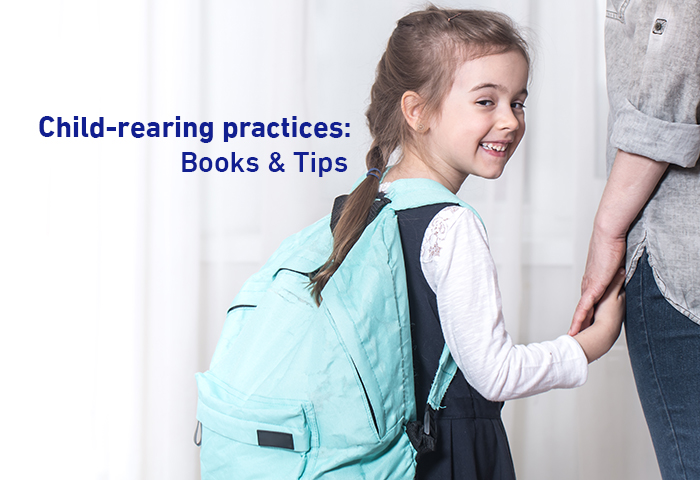
Introduction to child-rearing
An introduction to child-rearing is an educational, and an awareness tool for your child in the long term. Technology has changed cognitive-emotional concepts and motivations for individuals, families, and society as a whole.
The practice of parenting is the process of parenting, i.e. the mechanisms through which they directly help their children achieve the goals of socialization. The education process involves planning, formulating, and implementing the program to gadget the child-rearing program in a certain way that is in line with the requirements of the family and society. During this process, the child learns moral values, ethical values, and a set of behaviors necessary for the child’s proper development and improvement that will contribute positively to the family and society.
How to better help raise children Rethinking our rearing methods
Lack of obedience or misconduct is not the only thing that is alarming or should make caregivers reconsider their educational methods. You should pay attention if you see your children increasingly inclined towards:
Withdrawal: staying alone, unusually overly calm, sharing less of the day’s events or feelings.
Violence: bullying or dealing with others with physical and verbal violence, and overreaction to usual attitudes.
Fear: Fear of certain people or situations/places and lying to hide something or avoid punishment.
Listening to your children is a skill
Listen carefully and make sure you show signs that you are a good listener.
- Choose the right time to ask them to tell you about their day.
- Listen carefully and make sure of showing signs that you’re a good listener.
- Avoid cutting of their conversation and wait until they finish.
- Ask questions to show that you are actually interested (i.e. what happened next? What did you do?)
- Avoid judging and lecturing if they admit their wrongs.
Now, exchange roles and ask them to listen to you while you tell them what happened to you. Talk to your kids about how they feel being listened to, and do they — that way — feel better?
Try positive requests for better communication
Instead of “commanding” the positive request is to ask someone to do something, not stop doing the thing i.e. “Come back early,” instead of “don’t be as late as you always do”, the consequences should be: different from what parents use to reward.
Example: If the reward is to spend time with their friends, the consequence will not be to cancel this time.
Example: Including an apology, if negative behavior affects someone else, such as: “If you break things that belong to someone else, you should apologize and help them fix them.”
Consequences should not be including any physical punishment. It deprives teenagers of their right to food or to go to school. Instead, they can be restricted to a privilege such as reducing break time with friends or adding responsibilities such as doing more tasks and chores.
The 5 languages of love used by children: by age group (book)
Physical touch: especially with newborns, however, in teens it could be slight;y different in females versus males, whereas your daughter could show high interaction and interest in this language, but, your son could be shy from showing this type of attention.
Words of affirmation: using words of affirmation as a way of motivation, grace, thanks….etc. however, you should be careful using this language, whereas your child could think that this is the normal state and they could expect that they should be always treated like that by friends and family. Instead, use this language when your child has done something deservedly of complimenting and motivation.
Quality time: continuous and consistent quality time with your child.
Gifts: Children, in general, are drawn to colors and visually appealing presents, it does not have to be an expensive gift. Also when giving presents to choose the right time whereas giving gifts always/regularly could make them prone to being spoiled. Also, teach your kids to keep and value their gifts as their value is from the giver.
Acts of service: Serving your child with the assistance they need or want if if they can do it solely.
Raising children in Islam
The establishment of faith in the heart of the son by teaching him the word monotheism “there is no God but God”, and its requirements and meanings, and the love of the child by God – by mentioning his Almighty qualities and grace on human beings, education in the Islamic religion is on:
- Worship
- Ethics
- Concern of general structure: physical, psychological, inevitable, healthy, and cultural.
- Indirect pedagogy: Praying for them, choice of the good name and avoiding comparing between siblings, and treating them softly and with kindness.
- Do not assign them with what they cannot handle.
Top children rearing books
- The psychology of play: showing the importance of physical activities to the child’s health and psychological wellness.
Writer: Susanna miller
- How to Talk So Kids Will Listen & Listen So Kids Will Talk
Writer: Adele Faber & Elaine Mazlish
- Raising a rebellious child
Writer: Philip S. Hall & Nancy D. Hall
- The 5 Love Languages Of Children
Gary Chapman & Ross Campbell
- Secrets of the Baby Whisperer How to Calm, Connect, and communicate with your baby.
Writer: Tracy Hogg
